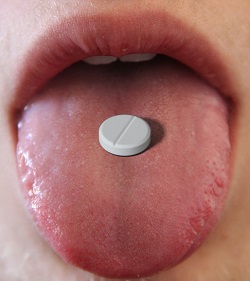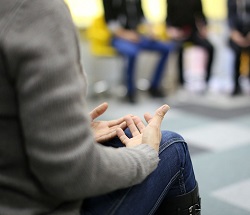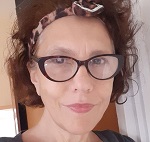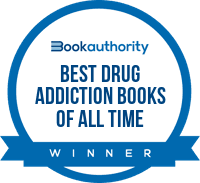Feeling Connected Is Key for Addiction Recovery. Guest Post by Michele Kirsch

12-step fellowships advise addicts to seek out similarities in others’ stories. In this guest article, award-winning memoirist Michele Kirsch shares how seeing her benzo addiction as different kept her in denial; and how identifying and connecting with other addicts helped her recover.
My Anxiety Medication Led to Addiction
My dealer was my doctor. He gave me the scrip for Valium and wrote ‘Take As Needed’; at the time, my three favourite words in the English Language.
I took Valium for anxiety on-and-off all my life since childhood. I felt different growing up because I was terrified of everything. Things that brought my friends pleasure–going to the movies, the beach, or a concert–brought on such severe anxiety for me that I could not do these everyday things unmedicated.
I could not grasp the concept of ‘feel the fear and do it anyway’. I was more, feel the fear, medicate ‘til you are sufficiently out of it to cope, and then do it, loaded.
I saw my addiction as different from the get-go. Because my condition was medicalised–I had panic disorder, agoraphobia, a specific fear of vomiting (you name it, I was afraid of it)–it felt legit.
Prescription Addiction
Despite all my phobias and a growing pill addiction, I became a journalist, had two kids, and (for a long time) had a great relationship with their dad.
Though I loved my children dearly, I found the ups and downs of parenting off-the-scale stressful. Because doctors labelled all my disorders, I viewed my problems as strictly medical. Therefore, the solution had to be medicine, sometimes given to me legitimately, but increasingly, not.
 Doctors started getting told off about giving benzos out like sweeties, so they stopped, and I was screwed. When my GP stopped prescribing me Valium, I went to a ‘dirty doctor’ who worked out of a chemist's.
Doctors started getting told off about giving benzos out like sweeties, so they stopped, and I was screwed. When my GP stopped prescribing me Valium, I went to a ‘dirty doctor’ who worked out of a chemist's.
I was queuing up with hookers, street junkies, and crack addicts; yet I still thought I was just a housewife with an accidental habit which was no fault of my own. Yeah, I had to be the most respectable-looking person in the queue for illegal drugs.
Escalating Addiction and Alcoholism
My late friend Drew, when dying of AIDS, could get any drug he wanted. One of his parting ‘gifts’ to me was the information that you could make 5mg of Valium feel like 10 by chasing it with neat spirits. I started to drink on top of the Valium.
I didn't see myself as an addict or an alcoholic until I started to get sloppy, forgetful, and extremely moody. I was the queen of minimizing. I used to say: “But I only take Valium because I have anxiety.” I also drank vats of vodka, but that didn't seem to count at the time.
When my best friend died, I lost the plot big time and drank more or less around the clock. I left my husband and children and moved into a bedsit with the intention of cleaning myself up; but once I was on my own, with no one to answer to, I just drank more.
In Rehab, but Still in Denial
A friend hooked me up with a recovery team, which organised a detox and rehab. In treatment, a lot of people had been to prison or in mental hospitals, or both. I thought, ‘Well, I've never been to prison or a mental hospital, so I must be not as bad as they are’.
I said to my rehab counsellor: "I never stole anything; I'm not like the other people here." He replied: "Well, you robbed your children of their mother." That makes me well up now, but at the time I thought it was a crock of shit.
Rehab made us attend 90 12-step meetings in 90 days. I listened to all the horror stories and never related them back to my own experiences at all. They told me to look for the similarities, not the differences. Because I was ‘Ms Rebel Addict’, I looked for the differences and found loads.
One guy in treatment used to tell the story of his veins having collapsed, so he had to shoot heroin into his balls. I remember saying to a housemate: "Well, I never shot heroin into my balls." She pointed out that I didn't have balls, for a start, and also I never took heroin. That didn't make me less of an a ddict than this guy.
ddict than this guy.
Relating to Others’ Addiction Stories
The whole "Yeah, but...” way of thinking that you are different, a bit other, from fellow addicts is a sure-fire way to relapse, as I discovered at great expense. We all like to think, at first, our stories are unique, our pain is exquisite, no one really knows our pain. That's bollocks. We just express and feel it in different ways.
One of the lightbulb moments in my recovery was making a concerted effort to find stories with similar patterns. Once I started doing this, the 12 steps made a lot more sense to me.
There has been a boom in prescription drug addiction, so now there are more of these addicts in fellowships. But once you start looking for the similarities, you find them in every addiction story.
I used Valium to dull my fear enough to deal with people, places, and situations. But I became so enslaved to the drug, that the people, places, and situations were just things to ‘get through’, so I could go home and use more drugs privately. I hear this story a lot; that initially, using or drinking is a social thing, but then the social aspect becomes an irritant. Most people, at the end of using, are using alone. I surely was.
Fellowship Connections Help Us Cope
Feeling con nected to other people in recovery is crucial. Addiction is about burning bridges. Recovery is about building them. People in recovery are usually very zen. Others have an energy, a spark that is very attractive. Who wouldn’t want to be connected to people like that?
nected to other people in recovery is crucial. Addiction is about burning bridges. Recovery is about building them. People in recovery are usually very zen. Others have an energy, a spark that is very attractive. Who wouldn’t want to be connected to people like that?
Now that I feel connected to the people in my fellowship, I feel I can cope with most anything life throws at me. I have gone from being a ‘dry drunk’ with several relapses, including pretty awful ones with terrible consequences, to being sober with a strong daily programme to stay well. I don’t freak out about problems the way I would have done when I was not working a programme.
I have to stay connected to help others. Helping others keeps me well as well. The people I am helping are saving my arse as much as I am trying to save theirs.
My Addiction and Recovery Story
When writing my memoir, although it was scary to lay it all out there on the page, I did think 'Maybe this can do some good. Maybe this story, which has a happy ending, can inspire or give hope to someone in a similar position.'
It's not a ‘how-to’ book; but if the reader who is struggling with addiction reads it and identifies, then he or she might feel inspired to get help, to realise that their story, like my story, does not have to end badly.
Michele Kirsch’s memoir, Clean: A story of addiction, recovery and the removal of stubborn stains won the Royal Society of Literature Christopher Bland Prize. Read more from Michele on her blog.





